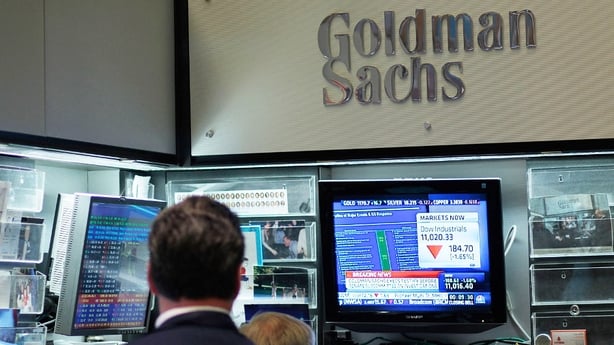Goldman Sachs Group's quarterly profit fell by more than half and revenue slumped to its lowest in over four years as market volatility hit the Wall Street bank's bond trading and investment banking businesses.
Goldman, wrapping up a dismal quarter for big US banks, reported a 40% drop in net revenue, reflecting declines in all of its main businesses.
As with other banks, Goldman's trading revenue was hit by sliding commodity and oil prices, worries about the Chinese economy and uncertainty about US interest rates.
Highlighting the challenges facing the bank, Goldman's return on average common equity - a measure of how well the bank uses shareholder money - was 6.4% in the quarter, down from 14.7% a year earlier.
Many investors think ROE should be at least 10% to cover the cost of capital. Goldman said its revenue from trading bonds, currencies and commodities (FICC) fell about 47%.
Equities trading revenue, normally a strength for the bank, slid 23%. FICC accounted for 26.2% of total revenue in the quarter - a far cry from the 40% the business regularly contributed before the financial crisis.
Goldman's traditional rival, Morgan Stanley, reported a 54% drop in adjusted revenue from fixed income and commodities trading and a similar drop in net profit. Its equities trading revenue fell 9.3%.
Goldman reported a 56.3% fall in net income applicable to $1.2 billion, or $2.68 per share, for the three months ended March 31.
That compared with $2.75 billion, or $5.94 per share, a year earlier, when the bank recorded its best quarterly profit in five years.

Analysts on average had expected earnings of $2.45 per share, according to Thomson Reuters.
Net revenue for the three month period fell to $6.34 billion from $10.62 billion.
Goldman's investment banking revenue, which includes income from advising on deals and underwriting bond and share offerings, fell 23.2% to $1.46 billion in the quarter.
Goldman, like its rivals, has been cutting costs to make up for weak revenue.
Compensation costs fell 40.3% to $2.66 billion in the latest quarter. Operating costs fell 28.7% to $4.76 billion as employee compensation costs dropped about 40%.
Non-compensation costs fell 5.6% to $2.1 billion, the lowest in seven years, as a result of lower provisions for litigation and other regulatory matters.
Goldman Sachs, JPMorgan Chase, Bank of America and Morgan Stanley together have cut nearly $4 billion in compensation costs since the first quarter of 2015, according to Reuters calculations.

